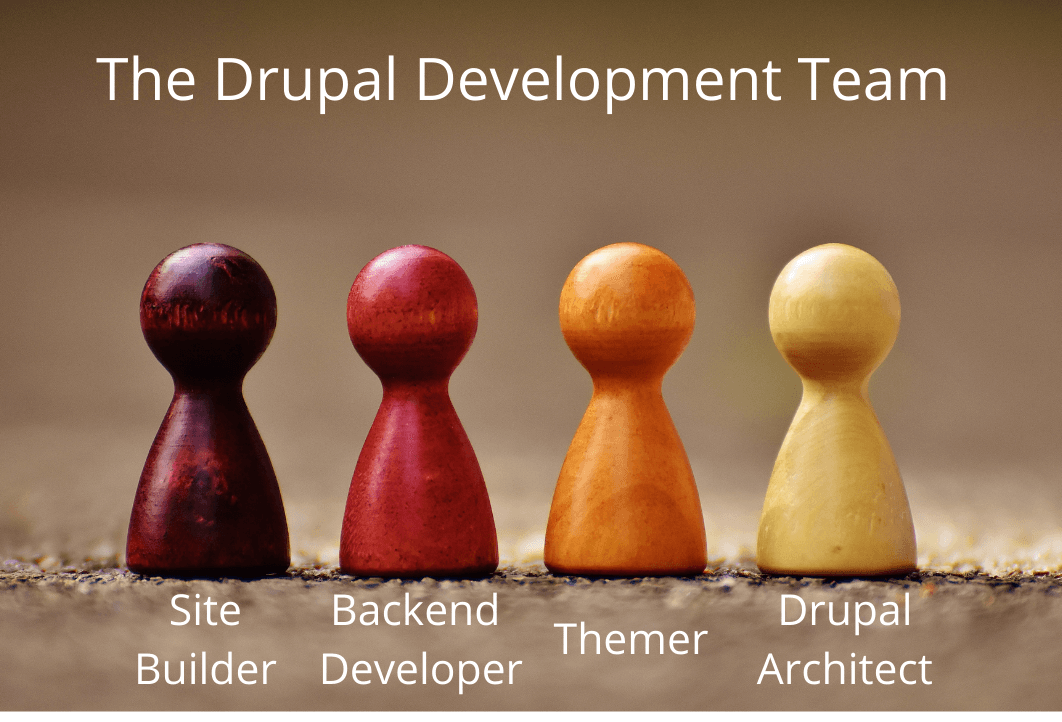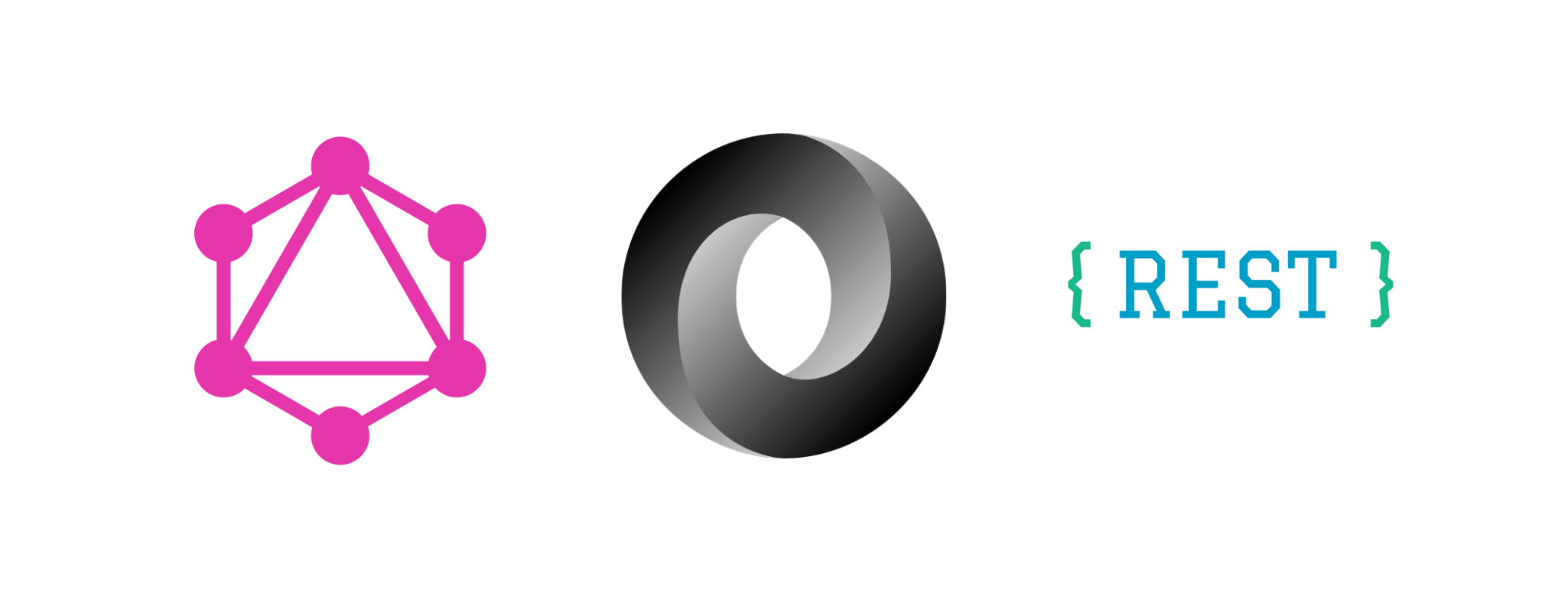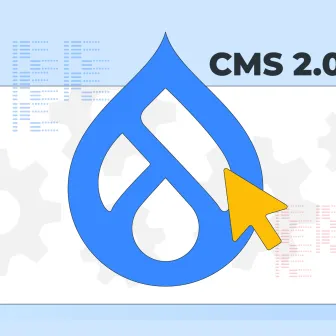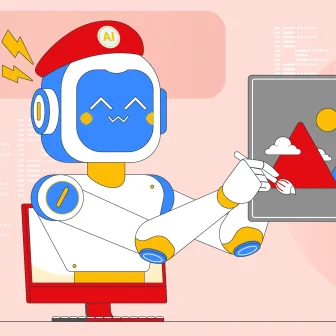Drupal development is not everyone’s cup of tea, however, it could be, provided that the person at the development end has the right skill set to handle all of Drupal’s potential. With Decoupled Drupal the need for these skills becomes even more prominent, you have to have excellent front-end and back-end developers separately since the two are independent of each other. And this is where the hiring process of the right set of professionals for your Decoupled Drupal projects becomes tricky and cumbersome.There are a lot of aspects to take under consideration and a lot of different skills to look for.
To make your job a tad bit easy, here is the checklist of the skill sets and the professionals that you need to successfully deliver the Decoupled Drupal projects..
What skills are needed for Drupal development during the decoupling process?
When you decouple Drupal, you are only going to be using it as a content repository, meaning it would only serve a purpose for backend development needs. Even if you use it for back-end, you are still going to be using it, so you would need good Drupal developers. So, here are the skills you need to be looking out for.

Proficiency in Site Building
You must know how important it is to attend primary school, the things we learn set the pace for our entire educational journey. So, what primary school is to us, Site Building is to Drupal. It is the most basic need of a Drupal website.
The primary purpose of a site builder is to reap all the benefits of Drupal by making it run and configuring all the options required to make a website fully functional. There isn’t a need for a custom code for this to happen, rather the Admin User Interface is equipped to handle it on its own. There are several other responsibilities of site builders as well, so, when hiring a site builder, you must keep in mind all of these.
- Installing Drupal manually and also doing the same with an application or a service;
- Downloading and installing modules along with disabling, uninstalling and removing them;
- Understanding of all core and contributed modules;
- Thorough knowledge of fields and entities with expertise in content and non-content fields;
- Finally, being familiar with blocks, menus and navigation as well as the basic Views skills;
All of these are the everyday requirements for site builders, and a proficient one excels at all of them.
Proficiency in Backend Development
The decoupled Drupal requires backend developers to be at their best at all times. This is because an impeccable front-end would seem sub-standard, if the content repository is not up to the par. There when hiring backend developers, you have to be extra picky and choose one who fits the criteria to the T. And here is what the criteria looks like;
- Unlike site builders, Backend developers are involved in writing the code in PHP and other languages, so they must have experience in PHP and MySQL at least.
- They must be competent in creating and executing modules. The added knowledge of building custom modules in Drupal 7, 8 and 9 (for Drupal 7 and Drupal 8 have not reached End-of-life as yet) is always preferable.
- They also need to have advanced knowledge of themes, consuming web services and automated deployments to name a few.
- The backend developer has to be aware of all the security concerns as well, along with the ways of overcoming them.
Proficiency in Theming
Theming is a part of Drupal’s front-end development. I know you must be wondering why decoupled Drupal would need front-end developers with experience in Drupal. To answer your question, I have three words; Progressively Decoupled Drupal.
Because the entire front-end is not separated from Drupal, it is important to have a good themer to build around Drupal’s front-end capabilities. Themers are responsible for the front-end design as well as the development and implementation of the client-side architecture.
For this purpose,
- they need to be experts in front-end technologies;
- they need to be experts in installing themes and generating sub-themes using PHP or Twig in Drupal;
- they need to be experts in designs and modifying them into a completely functional issue;
- they need to be experts in creating such modules that would expose the configuration to the site builders.
When you find someone like this, you would have the perfect themer for your progressively decoupled Drupal.
Read these infinity stones of Drupal development to adhere to the best practices when it comes to everything ranging from site-building to backend development.
Proficiency in Drupal Architecture
Drupal work is often regarded as web projects, and each project has to have someone who is aware of the ins and outs of the work. And in the case of Drupal that person is a Drupal Architect.
A Drupal architect is essentially the manager of the project, who possesses knowledge of all the key areas of the project. From backend development and site building to front end development and theming, he needs to be proficient in every task as a leader.
He should have an in-depth understanding of the ways to optimise Drupal because that is what the main role of a Drupal architect is. For the same, a certain level of expertise in PHP, MySQL, JQuery and CSS along with the knowledge of implementation tools like Varnish, GeoIP and UberCart comes in quite handy.
Note: Some proficiency in front-end technologies is always beneficial for Drupal developers. This may seem odd to you, since we are talking about the Drupal skills in decoupling. However, it isn’t much of an oddity and let me tell you why. We know that when decoupling is done, the presentation layer is entirely separated from the content aspect of a website, yet they still have to work together and they have to be in sync. This would become all the more convenient for decoupled Drupal developers, if they have some knowledge of the current front-end technologies. HTML, CSS, React and Gatsby are some of the most used technologies, so an understanding or maybe even some experience in using it would come in very handy for the streamlined development of a decoupled Drupal website.
Read these infinity stones of Drupal development to adhere to the best practices when it comes to everything ranging from site-building to backend development.
What is the requirement for Drupal web services?
The decoupled Drupal needs a good API layer for it to give you all the benefits it boasts. And a good API is only good when it is being handled by competent hands and these hands are your developers’.
There are three particular web services that are being implemented during decoupling. Although all three will be achieving the same goal, the way they do it is quite different. Therefore, your developers need to be aware of even the minutest details of these web services, especially with respect to the different Drupal versions.

Starting with GraphQL, firstly, it is not available in Drupal 7; an expert developer would know this. The GraphQL module in Drupal 8 and 9 will let your developers create their own custom schema or extend an existing one, as long as they are good with coding.
JSON:API is also not available in Drupal 7 and even in Drupal 8, it was a late addition, having been added as a stable core feature in Drupal 8.7. With the JSON:API module, a developer can decide which HTTP methods he should be using along with which response codes should be returned and when, eventually increasing productivity. A JSON:API expert would do it with ease.
Coming to REST API, it has been a part of Drupal core for a long time. Your developers need to be equipped to configure REST resources, customise their formats, customise their authentication mechanism as well as create the plugins.
A developer who speaks fluently in Drupal web services is the developer with the right skill set for Decoupled Drupal, since the API is the thread that holds both the front and backend together.
How do you capitalise the separated front end?
Now that Drupal specific skills are out of the way, let us move on to the presentation layer and the technologies the front-end developers need to be experienced with.
HTML and CSS
When talking about front-end development, the first things that come to mind are HTML and CSS. As you may know, the structure and layout of a page, both of the visual and aural, depends on these two, making them quite crucial for your web pages. Henceforth, they are the foundational technologies for building web pages, front-end developers need to be experts in these.
JavaScript Frameworks
For many, the primary reason behind taking up decoupling is to take advantage of the advanced JavaScript framework. Although Drupal has its own JavaScript library, it still lacks in the features provided by the JS framework.
React, Vue and Angular tend to be the most sought after technologies for transitioning into decoupled Drupal., with Vue.js being the latest addition in the mix. Frontend developers need to be aware of these and get the most of them with their knowledge.
Static Site Generators
If you have a static site with already available input files, you would want to delve into Static Site Generators for your frontend development. For this reason, you would need experts in SSG to fully capitalise its various tools. Gatsby, Metalsmith and Tome are the ones that are the most renowned at present.
Note: There is one more thing that you should be looking for in your front-end developer and that is the knowledge of Drupal. Like I mentioned in the previous section, the Drupal developers need to have some knowledge of the front-end technologies, similarly, the front-end developers need to have knowledge of the Drupal. Both the back-end and front-end may be different and their development may also be different, but they are going to be a part of one web project, so both teams need to have some cognisance of the other’s working. Decoupling would make a lot more sense then.
What other skills should you be looking for?
Up until now, we have discussed all the skills specific to the development of decoupled Drupal, you might think that your work is done, but it isn’t. There are certain skills that need to be held by developers, whether they are involved in decoupled Drupal or monolithic Drupal and they are going to be equally important for your decoupled Drupal project.
Adept at Designing
The process of website building starts with designing. The very first step towards development is the making of wireframe, which is basically a design template. This wireframe sets the pace and the direction of the web project, so your designer has to know what he is doing because if he doesn’t, the end would not be as enlightening as you might want.
Designing mandates tools, without them a designer would be helpless. Sketch, Figma, InvisionApp and Adobe XD are some of the go-to options for User Interface designing. The apprehension of these would make a designer adept at his job.
Adept at DevOps
In essence, DevOps is an IT service delivery channel that focuses on the adoption of practises that would collaborate your operations with the development team. For this to happen, you need a DevOps Engineer or a System Admin, who would be responsible for deploying websites to the live server.
- Expertise in Linux;
- Expertise in bash scripting and continuous integration;
- Expertise in automations technologies;
- And expertise in IAC (Infrastructure as Code) are essentials for this particular hiring objective.
Adept at QA
QA refers to quality assurance. It is a position held by developers to check the quality of work being churned out. They act as the targeted client and see whether what they are getting from the website is up to the standards or not.
Someone with limited knowledge of Drupal, web technologies and the industry requirements would not be a good fit. You would only be able to check something, if you know what to look for, right?
Adept at Project management
Like the suggests, this is a skill that oversees the project from the very beginning to the very end. From time deadlines to the day-to-day progress of the project, each and every aspect has to be monitored.
Drupal Project Management requires the manager to be skilled at a variety of things, namely;
- Expertise in team management and segregation of workload;
- Expertise in dealing with the clientele to understand their requirements and acting as the middle ground between them and the team;
- Expertise in analysing and rectifying plausible risks during the project;
- Expertise in the Drupal and all the technologies that accompany Drupal projects;
- And expertise in using reporting tools and implementing sound SEO strategies.
Adept at Business analysis
Every Drupal site has a business side, so when hiring the right skill set for decoupling, business analysis holds a key to success. Through business analysis, the business and IT sides of the website find a connection and work together. This is done through the use of data analytics, which help in examining the undergoing processes, analysing its needs and effectively communicating the same to the executives and stakeholders along with running logic/system interference with them.
While using Drupal, it is always preferable to have an analyst that has a development background with knowledge of Drupal. Extroverts are usually ideal for this position, since communication is vital here.
The Sum Total
Drupal is a pretty diverse system and an even higher level of diversity is found when Drupal is decoupled. Since you would be trying to capitalise Drupal in addition to capitalising other frontend technologies, you would have to put in an extra effort in the hiring process. Decoupled Drupal developers need to be equipped to handle the diversity it is going to inundate them with. The right skill set would help you and them to reap the benefits of decoupling.
Subscribe
Related Blogs
Drupal's Role as an MCP Server: A Practical Guide for Developers

"The MCP provides a universal open standard that allows AI models to access real-world data sources securely without custom…
What’s New in Drupal CMS 2.0: A Complete Overview

"Drupal CMS 2.0 marks a significant change in the construction of Drupal websites, integrating visual site building, AI…
Drupal AI Ecosystem Part 6: ECA Module & Its Integration with AI

Modern Drupal sites demand automation, consistency, and predictable workflows. With Drupal’s ECA module, these capabilities…




